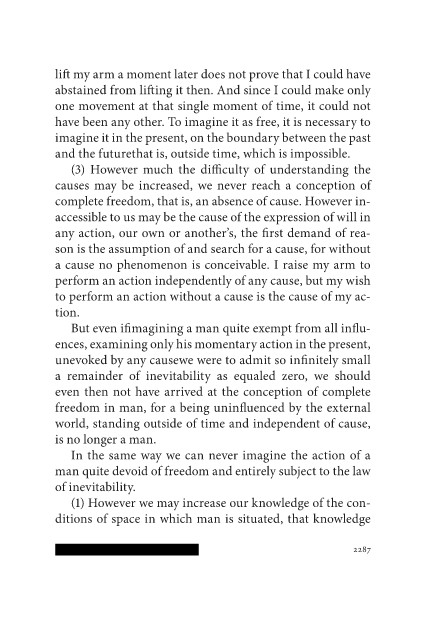Page 2287 - war-and-peace
P. 2287
lift my arm a moment later does not prove that I could have
abstained from lifting it then. And since I could make only
one movement at that single moment of time, it could not
have been any other. To imagine it as free, it is necessary to
imagine it in the present, on the boundary between the past
and the futurethat is, outside time, which is impossible.
(3) However much the difficulty of understanding the
causes may be increased, we never reach a conception of
complete freedom, that is, an absence of cause. However in-
accessible to us may be the cause of the expression of will in
any action, our own or another’s, the first demand of rea-
son is the assumption of and search for a cause, for without
a cause no phenomenon is conceivable. I raise my arm to
perform an action independently of any cause, but my wish
to perform an action without a cause is the cause of my ac-
tion.
But even ifimagining a man quite exempt from all influ-
ences, examining only his momentary action in the present,
unevoked by any causewe were to admit so infinitely small
a remainder of inevitability as equaled zero, we should
even then not have arrived at the conception of complete
freedom in man, for a being uninfluenced by the external
world, standing outside of time and independent of cause,
is no longer a man.
In the same way we can never imagine the action of a
man quite devoid of freedom and entirely subject to the law
of inevitability.
(1) However we may increase our knowledge of the con-
ditions of space in which man is situated, that knowledge
2287

